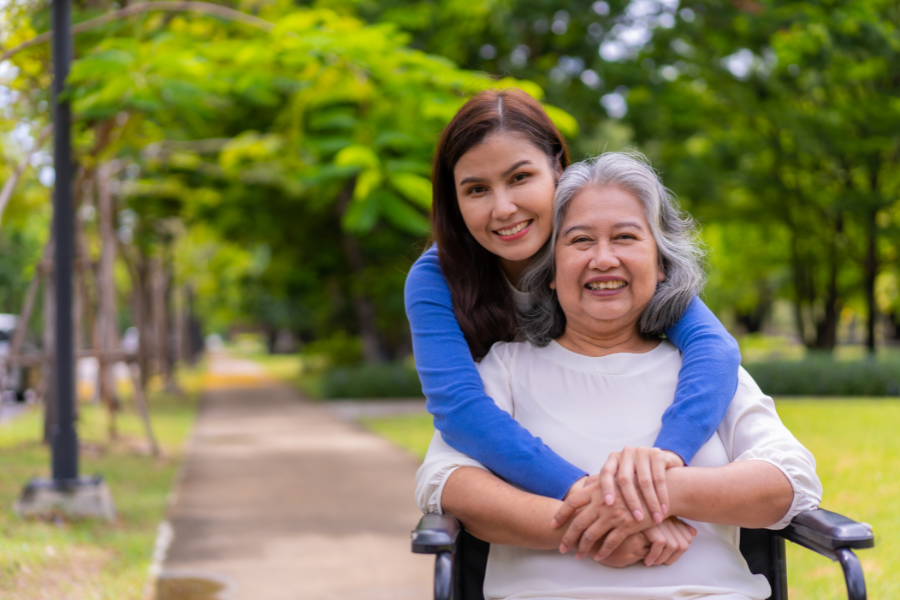We can support our loved ones through the aging process by giving them our love and support. Caring for elderly parents can be a challenging yet rewarding experience, and it’s important to be prepared for the challenges and responsibilities that come with this role. In this blog, we’ll discuss practical tips for caring for elderly parents, including how to understand their needs, create a care plan, stay organized, and seek support when needed. Whether you are new to caregiving or have been supporting your parents for some time, these tips can help you provide the best possible care for your aging loved one.
Contents
10 Tips for Caring for Elderly Parents
1. Understand Your Parent’s Needs
It is essential to understand the needs of each parent as they age as part of caring for them. This involves being aware of their physical and mental health, as well as any daily routines.
Communicating about your parent’s health helps identify potential issues and address them before it is too late. This could involve monitoring their medication habits. By keeping their overall health in mind, you can seek medical attention when appropriate.
When you understand your parents’ daily habits, this allows you to identify challenges where they may need additional support. For example, if your parents have difficulty preparing meals or getting around the house, you may need to help with grocery shopping or provide transportation to appointments.
2. Create a Plan
A care plan is a detailed plan that outlines the support and assistance your parents need to maintain their health and well-being. Creating a care plan is a valuable step in caring for elderly parents.
When developing a care plan, it’s important to consider your parents’ needs and preferences. This may involve taking into account their living arrangements, medical care, and daily activities. You can involve your parents in the decision-making process as much as possible to ensure that their needs are being met.
Some things to consider when creating a care plan for your elderly parent include:
- Living arrangements: Consider your parents’ living situation. Is it possible for them to live independently, or is additional support required? You may need to explore options such as in-home care or assisted living if you need extra care.
- Medical care: Be sure that your parents’ medical needs are being met. One way to help in this way is to coordinate with healthcare providers, manage medication habits, and ensure that your parents have access to necessary medical equipment and supplies.
- Daily activities: Think about or ask about your parents’ daily routine. What support is needed with tasks such as bathing, dressing, and preparing meals? You may need to provide assistance with these activities or hire a home health aide to help out in these ways.
3. Stay Organized
Staying organized helps because it gives elderly parents a clearer understanding of what is going on. It may be helpful to keep a calendar of appointments, medications, and other important information to ensure that they are receiving the best possible care. This could also involve creating a list of medications and their dosages and keeping track of important documents such as healthcare powers of attorney or living wills.
4. Communicate with Your Parent’s Healthcare Team
Don’t forget to communicate with your parents’ healthcare team. This includes staying in touch with their healthcare providers and making sure that they are aware of any changes in your parents’ health or medication routine. By keeping the healthcare team informed, you ensure that your parents are receiving the care they need.
5. Take Care of Yourself
Caring for an elderly parent can be a demanding experience, both emotionally and physically. Be sure to make time for yourself and practice self-care to avoid burnout. Consider asking friends, family, or support groups to help you cope with the challenges of caregiving. Find out your eligibility for government benefits if you regularly spend time caring for someone.
6. Consider Home Care
In the case that your parents are unable to live independently, you could consider hiring a home health aide to assist with daily tasks such as bathing, dressing, and medication management. There may be local resources available to help you care for your elderly parent, such as meal delivery programs, transportation services, and senior centers.
7. Explore Community Resources
There may be local resources available to help you care for your elderly parent, such as meal delivery programs, transportation services, and senior centers.
8. Make the Home Safe
Ensure that your parent’s home is safe and accessible. Make necessary home modifications, this includes installing handrails and removing tripping hazards.
There are a variety of Telecare24 products such as a Pendant Alarm and a Fall Alarm that give you and your parents peace of mind. These systems allow your parents to summon help in case of an emergency by pressing a button on a wearable device. A Fall Alarm can detect if your parent has fallen and immediately send an alert to a monitoring center or a designated caregiver. This is specifically useful for those who are at risk of falling.
9. Encourage Independence
While it’s important to provide support, it’s important to encourage your parents to stay independent as much as possible. This can help them retain a sense of control and dignity.
10. Seek Financial Assistance
If you are struggling to cover the costs of caring for your elderly parent, you may be eligible for financial assistance through programs such as Employment and Support Allowance (ESA). It is to your advantage to explore your options and seek financial assistance if needed.
Conclusion
In conclusion, caring for elderly parents is a fulfilling yet challenging experience.
It’s important to be prepared and have a plan in place to ensure that your parent’s needs are met. This may involve understanding their physical and mental health, staying organized, and seeking support from healthcare providers and community resources.
Additionally, it’s crucial to remember to take care of yourself and practice self-care to avoid burnout.
Here is a quick recap of 10 practical tips for caring for your aging parents:
We hope by following these practical tips, you can ensure that your elderly parents receive the best possible care.
If you find these tips helpful, please share them with your friends and family. Also, check out our blog for additional useful information like this.








